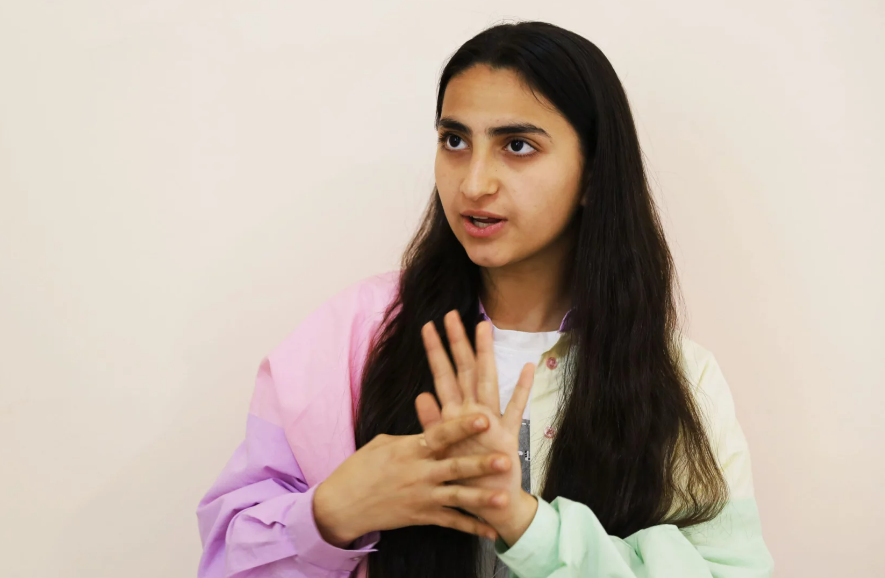“I discovered that we had such strong female figures a hundred years ago who fought for women’s rights, and I was amazed. It was also the first time I could watch a performance like this,” said 16-year-old Khatuna Usoyan, a person with hearing disability from Yerevan, Armenia.
Khatuna was a one of the 40 guests of the 100 Years Later play, held on 18 May 2024 in the framework of the EU-funded programme, ‘EU 4 Gender Equality: Together against gender stereotypes and gender-based violence’. The play showcases prominent Armenian women of the twentieth century and their roles in women’s empowerment. Actors portrayed female Members of Parliament from the First Republic of Armenia (from 1918-20), Varvara-Varya Sahakyan, Katarine Zalyan-Manukyan and Perchuhi Partizpanyan-Barseghyan, as well as famous female writers Zapel Yesayan (1878-1943) and Shushanik Kurginyan (1876-1927).
“It was exciting to learn about these powerful Armenian women. We must continue their work. I believe equal opportunities should be provided for all, and initiatives like this should be more frequent. People with hearing loss can do everything; they just communicate through sign language,” said 19-year-old George Lalayan from Yerevan, Armenia who lives with a hearing disability.
Following the play, an Armenian folk songs concert was held with sign language accompaniment. The Nairyan vocal ensemble kicked off the event by teaching the audience a song in sign language.
“Creating equal opportunities for every member of our society – women, men, children, older people and people with disabilities and ensuring inclusion, has always been our most important goal,” said Tsovinar Harutyunyan, Head of Office for UNFPA Armenia.
This theatre performance is part of the ongoing efforts of the ‘EU 4 Gender Equality’ programme to empower persons with disabilities. During the first three years of the programme in Armenia, 124 journalists and social media influencers learned how to report sensitively on gender and disability issues and counter discrimination against women with disabilities. Additionally, over 50 women and girls with disabilities were trained as local advocates for promoting gender equality and inclusiveness in their communities.






















































